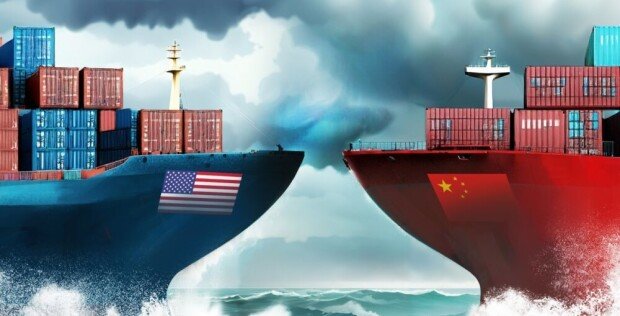US to regulate mid- to low-end semiconductors manufactured in China
US to regulate mid- to low-end semiconductors manufactured in China
Posted December. 23, 2023 08:08,
Updated December. 23, 2023 08:08

The intensifying hegemonic conflict between the United States and China over the semiconductor and key mineral supply chain is escalating. Following the United States' regulation of the export of advanced semiconductors to China since October of last year, it declared on Thursday (local time) its intention to extend regulation to include low-cost general-purpose semiconductors manufactured in China. In response, China retaliated by announcing a ban on exporting processing technology for rare earth elements, a critical strategic material. Korean semiconductor companies operating in the U.S. and China appear to be unavoidably affected by the repercussions.
The U.S. Department of Commerce, in its announcement on the day, stated, "Starting next month, we will begin a survey to determine how U.S. companies are procuring general-purpose semiconductors." This initiative is directed at approximately 100 companies in high-tech industries such as automobiles, aerospace, and defense, signaling its intention to examine general-purpose semiconductors' supply and demand status. “We have seen worrying signs that China is increasing its production of commodity semiconductors, thereby preventing competition in the market by U.S. companies,” Secretary of Commerce Gina Raimondo said. “Addressing non-market actions by foreign governments that threaten the U.S. general-purpose semiconductor supply chain is a matter of national security.”
China increased its market share by concentrating on the older general-purpose semiconductor market as the advanced semiconductor regulations of the U.S. hindered entry. In line with this, an official from the Joe Biden administration informed Bloomberg News that U.S. sanctions on general-purpose semiconductors "may include tariffs or other trade measures." This could be construed as an effort to diminish reliance on China by imposing substantial tariffs on general-purpose semiconductors imported by U.S. companies.
On the same day, China's Ministry of Commerce and Ministry of Science and Technology revealed an updated version of the 'China Export Prohibition and Restriction List,' incorporating limitations on exporting manufacturing and refining technologies, such as high-performance magnets utilizing rare earth elements. Reuters anticipated that this action would substantially influence the supply and smelting of rare earth elements, particularly those employed in electric vehicles, medical devices, and weapons.
An analysis suggests that when the survey on the status of general-purpose semiconductors in the U.S. commences, there is a high likelihood that Korean companies that have entered the U.S. market will also fall within the scope. An official from the Ministry of Trade, Industry, and Energy stated, “No specific investigation scope or plan has been announced yet, but we will cooperate with the U.S. government, considering the impact on our companies.”
weappon@donga.com
Headline News
- Joint investigation headquarters asks Yoon to appear at the investigation office
- KDIC colonel: Cable ties and hoods to control NEC staff were prepared
- Results of real estate development diverged by accessibility to Gangnam
- New budget proposal reflecting Trump’s demand rejected
- Son Heung-min scores winning corner kick







